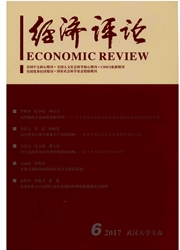

 中文摘要:
中文摘要:
全球经济的失衡是当前复杂的宏观经济问题,而美国和中国经常账户之间的严重失衡成为最引人关注的焦点之一。基于G20确定的经济失衡评估指标和对美中两国当前经济现象的描述,本文建立了一个囊括美中两国的实际有效汇率指数、经济增长、财政赤字等诸多因素的均衡模型,并采用VECM模型实证检验这些因素对美中经常账户失衡的影响及程度。本文以G20确定的失衡指标为参照系,分别探讨了美国的实际有效汇率指数、经济增长、财政赤字和中国的经济增长等因素是如何影响以及在多大程度上影响美中经常账户的失衡,得出以下结论:长期来看,美元贬值对改善美中经常账户失衡的影响并不显著;美国的财政赤字规模扩大和美中两国的经济增长对加剧美中经常账户失衡存在正向影响。
 英文摘要:
英文摘要:
Nowadays,global economic imbalances are one of the complex macroeconomic issues,and the imbalance between China and the U. S. current account has become one of the most interesting focuses. Based on the assessment indicators about global economic imbalances identified by G20 and the description of the Sino - US economic phenomenon, the paper builds up a global equilibrium model including factors such as the real effective exchange index, economic growth, fiscal deficits and some other factors, and studies the effects and extent of the above factors on the imbalance of US - Sino current account through the empirical test of VECM. According to the assessment indictors by G20, the paper essentially explores and measures how and what extent the factors affect the US - Sino current account imbalances and gets the following conclusions: the devaluation on US dollar works little for lessening the imbalance of US - Sino current account in the long term; the US' s deficit, economic growth of US and China have positive impacts on US - Sino current account imbalances.
 同期刊论文项目
同期刊论文项目
 同项目期刊论文
同项目期刊论文
 期刊信息
期刊信息
